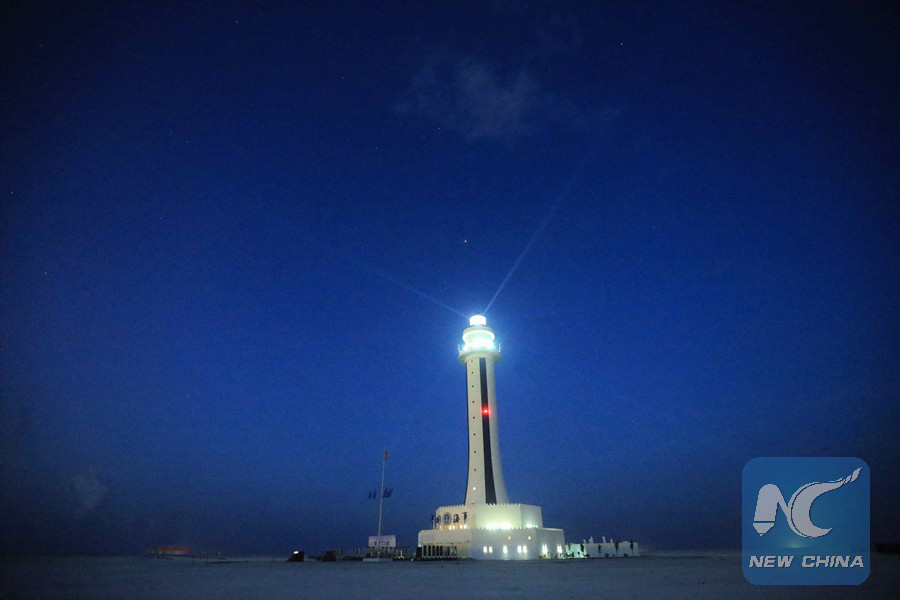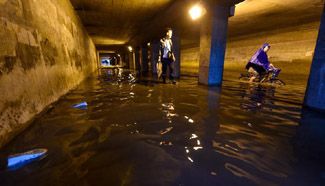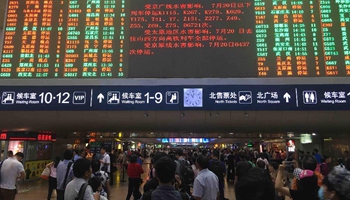
Photo taken on April 5, 2016 shows the lighthouse on Zhubi Reef of Nansha Islands in the South China Sea, south China. (Xinhua file photo)
BEIJING, July 20 (Xinhua) -- Coastal countries bordering the South China Sea have long established rules and principles regarding how to manage their disputes, which should not be overturned by outsiders with private interests and hegemonic pursuits.
Throughout history, the South China Sea, described as "the Asian Mediterranean" by a French expert on China, Francois Gipouloux, has been a central point of trade between Europe and Asia.
According to Gipouloux, before Western colonialism began its domination over Southeast Asia, three features were present in the South China Sea. First, regional trade was carried out by Chinese ocean-going ships. Second, all officials and crew members aboard these ships were Chinese people. Third, China guided the order of trade.
Though freedom of navigation and safety were jeopardized under Western intervention in the 1600s, Chinese merchant ships regularly sailed to countries in the region to carry out trade. Chinese traders were described by their counterparts as just, fair and civilized.
Navigational rules in the South China Sea were formed long ago. It was the Chinese who taught their neighbors how to build and steer ships, leading to an increase in ship-going activity in the South China Sea.
It was the rules of equality and sharing and setting up a joint defence against looting and plundering written by Chinese traders that helped maintain long-term peace and prosperity in the South China Sea, which remains to this day.
Furthermore, the rules governing the South China Sea are open to change. China and the countries of the region continue to alter rules and regulations in the Sea in accordance with the changing times.
In 2002, China and members of the Association of Southeast Asian Nations signed the Declaration on the Conduct of Parties in the South China Sea, which is a modern example of how China and Southeast Asia have come together to establish the region's rules of order.
In a word, there's no need for countries outside the region to forcibly dictate how affairs should be managed in the South China Sea. That should be left to the countries of East and Southeast Asia.
Western countries have a long history of failing to establish orderly rule over parts of the world. The Middle East is a classic example. Their intervention has led to chaos in Syria, Iraq and Libya.
The Asia-Pacific has become a rising global economic power because of decades of regional peace and stability. Should Western countries intervene in the South China Sea and its surroundings, that stability would quickly come to an end. The Asia-Pacific would likely become another Middle East.












